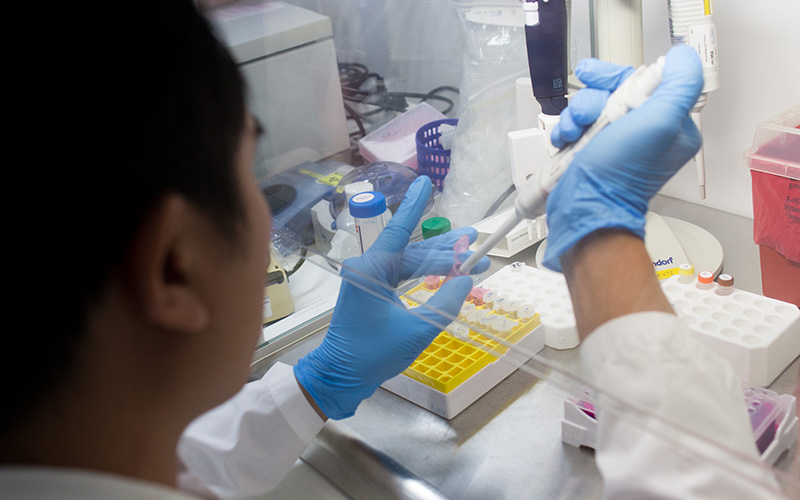
Every March 24, international public health bodies rally to raise awareness of the terrible health, social and economic consequences of tuberculosis and call for a greater effort to eradicate this global epidemic in accordance with the Global Plan to End TB, 2023–2030 strategy.
|
Tuberculosis is the second most frequent cause of death due to infectious disease in the world (source: WHO):
|
Our actions in the field of tuberculosis
With more than 11 projects on this subject in 2023, in around 10 countries, the Mérieux Foundation has made fighting tuberculosis a priority. This year, building on its experience, it has joined the Stop TB Partnership, the international partnership of those involved in the fight against TB and communities affected by the disease. Joining this network confers recognition both for the Foundation’s expertise and for its operations on the ground. The Mérieux Foundation also joined The Union in 2023, a global organization fighting tuberculosis and lung diseases.
The Mérieux Foundation contributes effectively to the fight against TB by combining community interventions for the most vulnerable populations with the strengthening of healthcare and laboratory systems.
Its activities focus on improving access to diagnosis and operational research, integrating an essential component of capacity building and diagnostic innovations in order to evaluate the most effective diagnostic solutions suited to the needs of the most isolated areas.
Its research projects aim to improve prevention, diagnosis, and treatment for people suffering from tuberculosis, especially the most difficult forms to detect (pediatric and extrapulmonary TB) in both its active and its latent forms. This involves monitoring the transmission of the disease from patients known as contacts, usually within a household or community, to improve prevention and optimize treatment follow-up and success rates.
Find out more: Jonathan Hoffmann, leader of the tuberculosis program at the Mérieux Foundation, talks about the silent form of the disease, latent tuberculosis, in a podcast (in French):
As diagnosing tuberculosis remains difficult, especially in the low-income countries where the Mérieux Foundation operates, it sets up collaborations to facilitate access to diagnosis using innovative methods. One example is in Laos, where the DiLAO-TB project aims to study the feasibility and relevance of incorporating modern technologies for diagnosing antibiotic resistance to improve the treatment of tuberculosis patients.
The Foundation’s strategy is based on close collaboration with national TB programs, including in Lebanon, Cameroon, and Madagascar, as well as with local institutions involved in community interventions, diagnosis, and research. To achieve this, the Foundation relies on the GABRIEL network, which has established a tuberculosis working group to help its members develop a strategic international approach to researching the disease.
